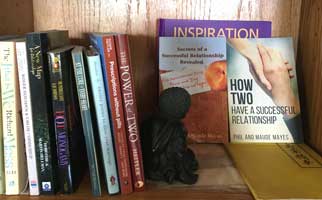Successful Relationship Reading Corner
 This week we wrote about how to dissect the arguments in your relationship, find out what's happening, and what you can do about them. Here are some other writers with helpful advice. This week we wrote about how to dissect the arguments in your relationship, find out what's happening, and what you can do about them. Here are some other writers with helpful advice.
7 ways to end an argument with your partner "'Clearing the air and coming back to love and compassion after each disagreement means those are the emotions left hanging in the air between us, and what could possibly feel better than that day-to-day?' relationship expert Chantal Heide says."
3 Reasons Why Couples Have the Same Fights Over and Over "If you’re married or in a committed relationship, you’ve probably noticed that some of your arguments never seem to get resolved. Rather, they get recycled. Why is this such a common occurrence? And why do these situations feel almost insoluble? Here are three common reasons:"
Resolving ongoing arguments with your partner "You're having the same tiff over and over with no resolution in sight, and cracking it about dirty dishes quickly escalates to "You don't love me anymore". We know 20 per cent of married couples, for example, are strained at any one time. And because the experts say it's not if you fight but how that matters, hitting reset on argument patterns can help. We went to the professionals to find out: how does one get off the argument hamster wheel?"
|
|